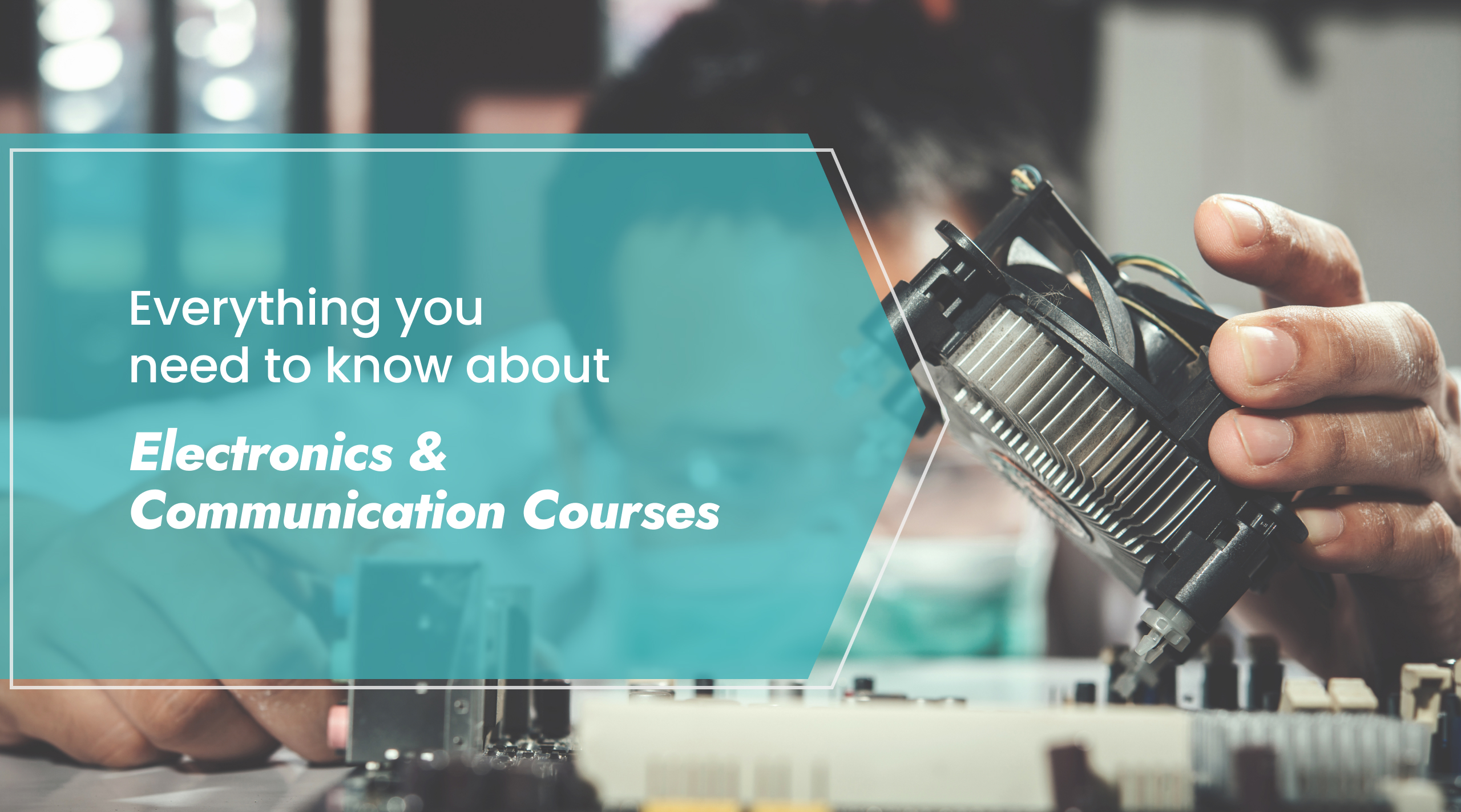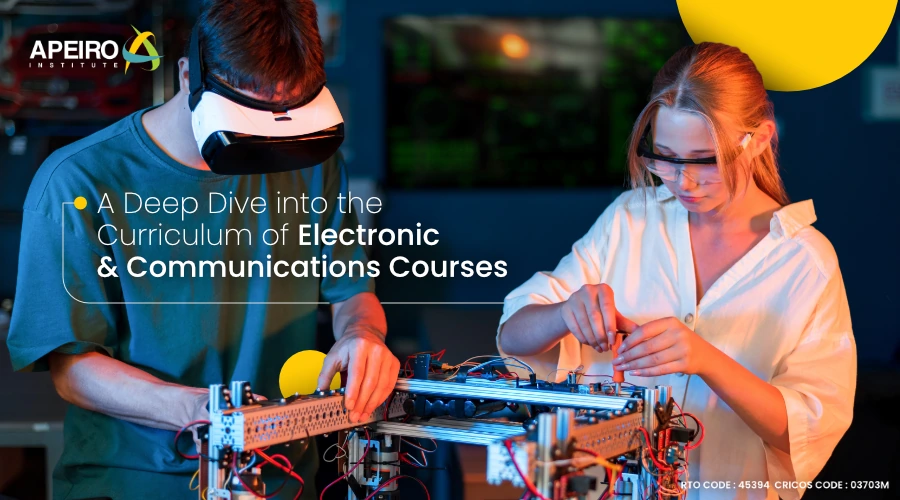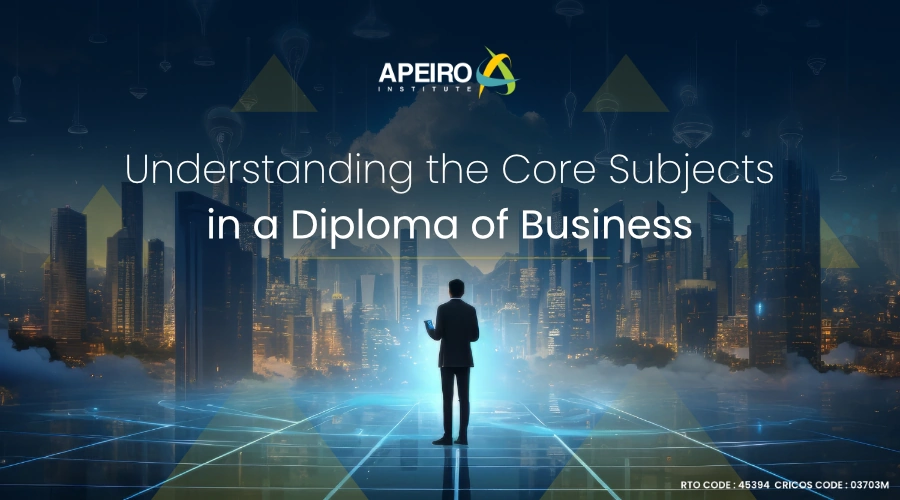What Is Electronics and Communication?
Electronics and Communication course focuses on the concepts of electrical engineering, electronic devices, and relevant software. We use various electronic goods every day, such as TV, mobile phones, computers, etc. A lot of involvement in designing, manufacturing, and maintaining such electronic equipment will be there if you choose to study Electronics and Communication. It deals with small household electronic goods and the design, manufacturing, and maintenance of electrical and electronic systems used in large and medium-sized industries too!
The principal focus of Electronics and Communication is the design, analytics, and manufacturing of circuits. Some of the important subjects covered in this discipline include- Control systems, Logic design, VLSI, PCB Design, Circuit Networks, Integrated circuits, Electrical systems, Communication engineering, Signal Processing, Sensors, etc.
What is it About? ‘Everything you need to know about Electronics & Communications Courses
Students will learn to design electronic circuits, computer systems, electric wires, and develop control systems in this course. These candidates are considered to deal with the problems that occur with electrical machines and electric power transmission and find solutions for electrical and electronic devices.
This course has significant topics such as fundamentals and principles of Maths, Computer Science, Physics, and Project Management. In this course, there are sub-disciplines of Electrical and Electronics Engineering, including power, telecommunications, electronics, signal processing, control, and microelectronics instrumentation and Computers.
This course also helps to learn electrical machinery, collection, future generation problems, transmission and electrical controls in factories, electric motors and their management, distribution of electrical energy, and transformers. An objective of this course is to provide electrical power to candidates.
Why APEIRO?
A Certificate in Electronics and Communications qualification at APEIRO Institute provides competencies to select, install, set up, test, fault find, repair and maintain electronic equipment and devices at component/sub-assembly level with options in communications, audio, video and TV, personal computer and networks, security and custom installations. Currently, we are the only Registered Training Organisation (RTO) in WA that provides Electronics & Communications courses.
Career Outcome
Job roles and titles vary across different industry sectors. Possible job titles relevant to this qualification include:
- Electronics and Communications Tradesperson
- Electronic Equipment Tradesperson
- Custom Electronics Installations Technician
Diploma in Electronics Course Suitability
- A Diploma in Electronics also provides many subjects for further higher studies like electronics, instrumentation, telecommunication, medical electronics and computer science.
- Students should have an interest in the very subject and hardworking nature to achieve their goals.
- They should possess skills such as good communication, good planning, organisation skills and good coordination.
- They also can undertake detailed and elaborate work; the ability to identify, analyse and solve problems.
How is Diploma in Electronics Course Beneficial?
- Students can become teachers, lecturers and professors after passing specific educational qualifications.
- The course provides an academic environment needed for lifelong learning for a professional career.
- They can run their own private business and help the family business.
What Next
Successful completion of Certificate III in Electronics and Communications may allow a learner to apply for Certificate IV in Electronics and Communications in APEIRO Institute or elsewhere. Candidates wishing to further their education at an Australian University will be advised to contact the University directly for enrolment purposes.
Current situation of the industry (With Covid19)
With the ever-changing business environment due to the Covid-19 pandemic, APEIRO Institute is ready to cope with the economic changes by introducing business units such as BSBHRM513 Manage Workforce Planning and BSBMGT403 Implement Continuous Improvement. The team prepares students to identify workforce supply volatility by performing PESTLE environment analysis and risk management analysis. Hence, this qualification helps improve students’ career prospects by further developing their skills over a wide range of business functions.






